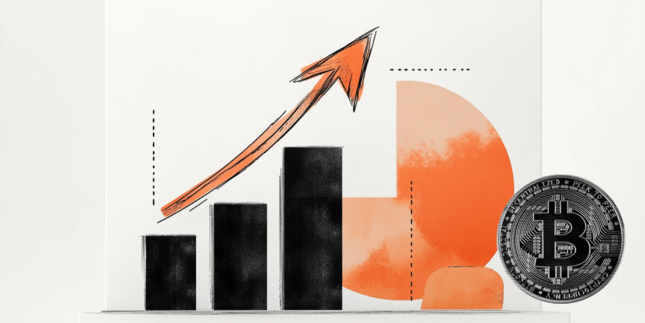- EUR/GBP edges higher amid improved risk sentiment after President Trump announced less severe tariffs on Chinese imports.
- German Chancellor-in-waiting Friedrich Merz cautioned, "President Trump’s policies are heightening the risk of an earlier-than-expected financial crisis."
- UK 10-year gilt yields climbed to 4.76%, reflecting continued volatility in global bond markets amid intensifying US-China trade tensions.
EUR/GBP remains stronger for the third successive session, trading around 0.8670 during the Asian hours on Monday. The currency cross appreciates amid improved risk sentiment after US President Donald Trump announced less severe tariffs late Sunday on Chinese imports, including semiconductors and electronics. However, clarifying earlier speculation about exemptions, Trump confirmed these goods would remain subject to the existing 20% tariffs related to fentanyl rather than the previously suggested 145% duties.
In an interview with Handelsblatt on Saturday, German Chancellor-in-waiting Friedrich Merz expressed concern over Trump’s economic approach, stating, “President Trump’s policies are increasing the risk that the next financial crisis will hit sooner than expected.” Merz also voiced support for a new transatlantic trade agreement, adding, “Zero percent tariffs on everything—that would be better for both sides.”
The upside potential for EUR/GBP cross may be capped as the Pound Sterling (GBP) remains supported by a rise in UK 10-year gilt yields, which reached 4.76% amid ongoing volatility in global bond markets driven by escalating US-China trade tensions. China’s Ministry of Finance announced a sharp tariff hike on US goods, raising duties from 84% to 125%, following President Trump’s earlier move to increase tariffs on Chinese imports to 145%.
UK GDP data suggested the economy expanded by a stronger-than-expected 0.5% in February, marking the fastest monthly growth in nearly a year with broad-based gains across key sectors. The upside surprise—partly fueled by a surge in pre-tariff manufacturing—prompted investors to dial back expectations for aggressive Bank of England (BoE) rate cuts. Nonetheless, markets still anticipate at least three quarter-point reductions this year.
Risk sentiment FAQs
In the world of financial jargon the two widely used terms “risk-on” and “risk off'' refer to the level of risk that investors are willing to stomach during the period referenced. In a “risk-on” market, investors are optimistic about the future and more willing to buy risky assets. In a “risk-off” market investors start to ‘play it safe’ because they are worried about the future, and therefore buy less risky assets that are more certain of bringing a return, even if it is relatively modest.
Typically, during periods of “risk-on”, stock markets will rise, most commodities – except Gold – will also gain in value, since they benefit from a positive growth outlook. The currencies of nations that are heavy commodity exporters strengthen because of increased demand, and Cryptocurrencies rise. In a “risk-off” market, Bonds go up – especially major government Bonds – Gold shines, and safe-haven currencies such as the Japanese Yen, Swiss Franc and US Dollar all benefit.
The Australian Dollar (AUD), the Canadian Dollar (CAD), the New Zealand Dollar (NZD) and minor FX like the Ruble (RUB) and the South African Rand (ZAR), all tend to rise in markets that are “risk-on”. This is because the economies of these currencies are heavily reliant on commodity exports for growth, and commodities tend to rise in price during risk-on periods. This is because investors foresee greater demand for raw materials in the future due to heightened economic activity.
The major currencies that tend to rise during periods of “risk-off” are the US Dollar (USD), the Japanese Yen (JPY) and the Swiss Franc (CHF). The US Dollar, because it is the world’s reserve currency, and because in times of crisis investors buy US government debt, which is seen as safe because the largest economy in the world is unlikely to default. The Yen, from increased demand for Japanese government bonds, because a high proportion are held by domestic investors who are unlikely to dump them – even in a crisis. The Swiss Franc, because strict Swiss banking laws offer investors enhanced capital protection.
Information on these pages contains forward-looking statements that involve risks and uncertainties. Markets and instruments profiled on this page are for informational purposes only and should not in any way come across as a recommendation to buy or sell in these assets. You should do your own thorough research before making any investment decisions. FXStreet does not in any way guarantee that this information is free from mistakes, errors, or material misstatements. It also does not guarantee that this information is of a timely nature. Investing in Open Markets involves a great deal of risk, including the loss of all or a portion of your investment, as well as emotional distress. All risks, losses and costs associated with investing, including total loss of principal, are your responsibility. The views and opinions expressed in this article are those of the authors and do not necessarily reflect the official policy or position of FXStreet nor its advertisers. The author will not be held responsible for information that is found at the end of links posted on this page.
If not otherwise explicitly mentioned in the body of the article, at the time of writing, the author has no position in any stock mentioned in this article and no business relationship with any company mentioned. The author has not received compensation for writing this article, other than from FXStreet.
FXStreet and the author do not provide personalized recommendations. The author makes no representations as to the accuracy, completeness, or suitability of this information. FXStreet and the author will not be liable for any errors, omissions or any losses, injuries or damages arising from this information and its display or use. Errors and omissions excepted.
The author and FXStreet are not registered investment advisors and nothing in this article is intended to be investment advice.
Recommended content
Editors’ Picks

Gold retains solid gains after reaching fresh record highs Premium
Gold price hit yet another record high on Monday, as the US Dollar sell-off continued on the back of US President Donald Trump’s criticism of Federal Reserve Chair Jerome Powell, fueling concerns about the future of the US economy.

AUD/USD eases from fresh 2025 highs, holds above 0.6400 Premium
The Australian Dollar surged against its American rival to a fresh yearly high of 0.6437. The poor performance of Wall Street pushed AUD/USD lower ahead of the daily close, but broad USD weakness is likely to keep Aussie on the winning side.

EUR/USD hovers above 1.1500 as investors drop the USD
The EUR/USD pair traded as high as 1.1574 on Monday, retreating from the over three-year high as fears cooled in the American session. Still, Wall Street edged sharply lower amid concerns about the Federal Reserve's autonomy.

Bitcoin traders celebrate 3.125 BTC halving anniversary with $90K price prediction
Bitcoin price surges past $88,000 on Monday as traders mark the 3.125 BTC halving anniversary amid a rapid shift in investor focus away from USD-based investments.

Five fundamentals for the week: Traders confront the trade war, important surveys, key Fed speech Premium
Will the US strike a trade deal with Japan? That would be positive progress. However, recent developments are not that positive, and there's only one certainty: headlines will dominate markets. Fresh US economic data is also of interest.

The Best brokers to trade EUR/USD
SPONSORED Discover the top brokers for trading EUR/USD in 2025. Our list features brokers with competitive spreads, fast execution, and powerful platforms. Whether you're a beginner or an expert, find the right partner to navigate the dynamic Forex market.



